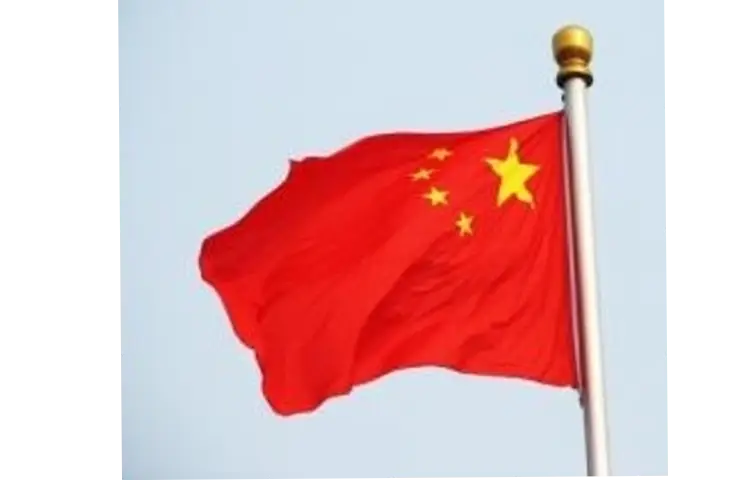

China's new alliance
<p>
<strong><em>As the world is witnessing rapid geopolitical shifts amid greater emphasis on the Indo-Pacific, new regional blocks are emerging. Not just that. The US, which is keen to contain China&rsquo;s increased role, is now focussed on the region. How is China dealing with this? </em></strong></p>
<p>
<strong><em>India Narrative brings an explainer of China&rsquo;s attempt to forge an alliance to counter the US-led QUAD </em></strong></p>
<p>
<strong>What is the new China-led QUAD?</strong></p>
<p>
China, which has come under the spotlight for its increasing aggression, is moving fast to form an alliance group with Russia, Iran, Pakistan and Turkey.</p>
<p>
<strong>What is the reason for this alliance?</strong></p>
<p>
The main purpose to form this alliance is to counter the QUAD or Quadrilateral Security Dialogue &ndash; an informal grouping between the US, India, Australia and Japan. China has always shown its discontent about the formation of the QUAD, the purpose of which as many foreign policy analysts noted was triggered by Beijing growing aggression and thus to contain its aggressive moves.</p>
<p>
<strong>Also read: <a href="https://www.indianarrative.com/world-news/can-china-led-quad-succeed-as-west-closes-in-with-new-alliances-115730.html">Can China led QUAD succeed as West closes in with new alliances?</a></strong></p>
<p>
<strong>How did the idea of forming this alliance come through?</strong></p>
<p>
The proposal was mooted by Iran. &ldquo;Countries like Iran, Pakistan, Turkey, Russia and China have the potential to form a new alliance for a better future of the region,&rdquo; Iran&rsquo;s Ambassador to Pakistan Seyyed Mohammad Ali Hosseini said <a href="https://www.aa.com.tr/en/middle-east/iranian-envoy-proposes-new-alliance-of-5-countries/1724935">in a lecture at the Islamabad Strategic Studies Institute</a> (ISSI).</p>
<p>
<strong>What is the difference between the US led QUAD and the China-led alliance?</strong></p>
<p>
For foreign policy analysts, the one led by the US is a grouping of countries that are like minded, following the basic principle of democracy while the one led by China has been perceived to be driven by &ldquo;limited common interest&rdquo; and rivalries and is not backed by compelling principles and values, Rajiv Bhatia, distinguished fellow, Gateway House and a former ambassador said in an article in <a href="https://www.hindustantimes.com/opinion/democratic-quad-vs-china-s-quad-101626615380664.html">Hindustan Times</a>.</p>
<p>
<strong>Why do analysts doubt the success of the China led alliance?</strong></p>
<p>
While for China and Pakistan, the key concern is related to India, for others including Russia, New Delhi is not the prime reason. For one, India and Russia have been working to boost their bilateral relations.</p>
<p>
<strong>Also read: <a href="https://www.indianarrative.com/tech-news/us-india-japan-australia-to-sign-pact-for-stepping-up-chip-production-move-to-cut-china-to-size-115723.html">US, India, Japan, Australia to sign pact for stepping up chip production, move to cut China to size</a></strong></p>
<p>
Therefore, Though the countries that have been looking to form this alliance have common interests, there are serious underlying conflicts of interests as well. While cooperation and partnership among these countries has been growing in the past, Russia and China have clashing interests in several regions including Central Asia, which the former considers its own backyard. China has also remained mute and even refused to show its support to Moscow on issues relating to Crimea and Ukraine. Besides, Turkey and Iran have also remained on different pages when it has come to major geopolitical issues. &nbsp;</p>
Germany has come out resolutely behind India and its fight against terrorism under Operation Sindoor.…
Baloch leader Mehran Marri has accused Pakistan of unlawfully occupying Balochistan since 1948, transforming the…
The Trump administration announced on Wednesday that it will continue its efforts to prevent advanced…
External Affairs Minister S Jaishankar met with German Chancellor Friedrich Merz in Berlin on Friday…
The Central Tibetan Administration (CTA) launched a Month-long Panchen Lama Awareness Program aimed at educating…
India's Ambassador to Russia, Vinay Kumar, on Friday, briefed the all-party parliamentary delegation, led by…